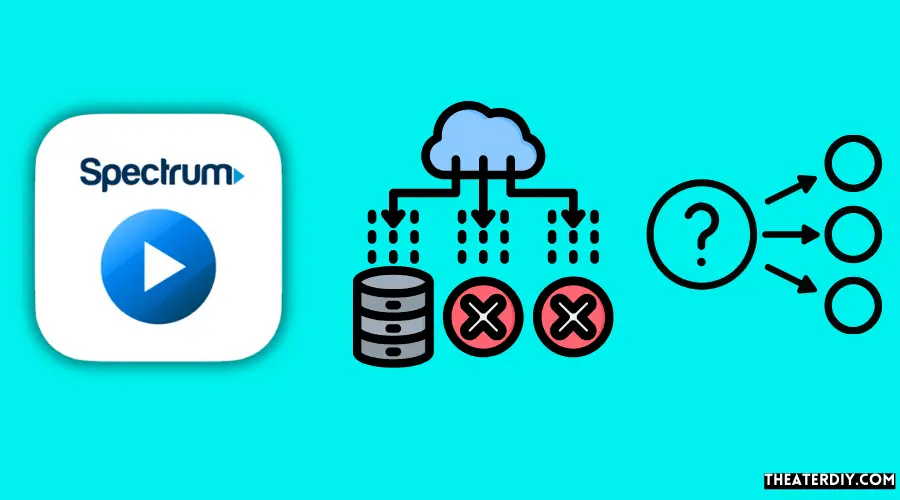Spectrum Internet packet loss can be fixed by restarting network hardware, using a VPN, increasing network bandwidth, switching from Wi-Fi to ethernet, and checking network connections. Packet loss on a network is often caused by overloaded devices, faulty equipment, and cabling.
Fixing Spectrum Internet: Packet Loss Solutions
Slow internet connection, background programs or downloads, and resetting the modem and router can also cause spotty internet on Spectrum. Network congestion can contribute to packet loss, leading to data packets not reaching their destinations in time. Troubleshooting intermittent packet loss may require on-site analysis using a spectrum analyzer.
Spectrum, also known as Charter Spectrum, has been providing wireless communication services.
Understanding Spectrum Internet Packet Loss
When it comes to a smooth internet experience, packet loss can be a major annoyance. If you’re a Spectrum Internet user and have been experiencing connectivity issues, it’s important to understand the concept of packet loss and how it can affect your overall internet connection. In this article, we will explore what packet loss is, how it can impact your internet experience, and why it might occur on the Spectrum network.
What is packet loss?
Packet loss refers to the phenomenon of data packets not reaching their intended destination within a network. These data packets are the building blocks of any online activity, whether it’s streaming a video, browsing a website, or sending an email. When packet loss occurs, some of these packets are lost in transit or never reach their destination, resulting in interruptions, delays, or incomplete data transmission.
In simple terms, imagine you’re watching a video, and suddenly the video freezes or buffers. This could be a result of packet loss, as some of the video data packets were not received correctly by your device. Even a small percentage of packet loss can have a noticeable impact on your internet experience.
How does packet loss affect your internet connection?
Packet loss can directly impact your internet connection in several ways. Here are some of the key effects:
- Increased latency: When data packets are lost, it takes longer for them to be resent or for the next packet to be received. This delay, known as latency, leads to a slower and less responsive internet connection.
- Reduced data integrity: Data packets carry information, and when some of these packets are lost, the integrity of the transmitted data is compromised. This can result in distorted audio or video, incomplete web pages, or corrupted files.
- Disrupted real-time applications: Packet loss can significantly impact real-time applications such as online gaming or video conferencing. As these applications rely on a continuous flow of data, even a slight interruption can cause lags, freezes, or dropped connections.
Why does packet loss happen on the Spectrum network?
Packet loss can occur due to various reasons, and it is not specific to the Spectrum network. However, some common factors that can contribute to packet loss on the Spectrum network include:
- Network congestion: When there is a high volume of data flowing through the network, it can become congested, leading to packet loss.
- Faulty equipment or cabling: In some cases, malfunctioning network equipment or damaged cables can cause packet loss.
- Overloaded network devices: If switches or routers within the Spectrum network are overloaded with data, they may drop packets to maintain network performance.
It’s important to note that while packet loss can occur on any network, including Spectrum, the company continuously works towards optimizing its infrastructure and reducing instances of packet loss.
If you are experiencing persistent packet loss on your Spectrum Internet connection, it is recommended to contact Spectrum’s customer support to troubleshoot the issue further and find a resolution.
In conclusion, understanding packet loss is crucial in diagnosing and addressing connectivity issues in your Spectrum Internet connection. By knowing what packet loss is, how it affects your internet experience, and why it may happen on the Spectrum network, you can take appropriate steps to minimize its impact and enjoy a smoother online experience.
Identifying Common Causes Of Spectrum Internet Packet Loss

Spectrum Internet packet loss can be frustrating and disruptive to your browsing experience. Understanding the common causes of this issue can help you diagnose and resolve it more effectively. Below are some of the common culprits that can lead to Spectrum Internet packet loss:
Overloaded network devices
One of the most common causes of packet loss on a network is overloaded network devices. When switches and routers are burdened with processing too much data at once, they may drop packets that they cannot handle in time. This can result in packet loss and a less responsive internet connection.
Faulty equipment and cabling
Another major cause of packet loss is faulty equipment and cabling. If your network devices or cables are damaged or not functioning properly, they can disrupt the transmission of packets and lead to data loss. In such cases, identifying and replacing the faulty components can help alleviate the issue.
Network congestion
Network congestion can also contribute to packet loss on Spectrum Internet. When there is a high volume of data traffic on a network, the routers and switches may struggle to handle the load, resulting in dropped packets. This can occur during peak usage times or in areas with a large number of connected devices.
Inadequate signal strength at the destination
Packet loss can occur if the destination device or network has weak signal strength. If the receiving device is too far away from the router or experiences interference, it may struggle to receive packets effectively, leading to loss of data. In such cases, improving signal strength or relocating the device can help mitigate the issue.
Natural or human-made interference
Interference from natural or human-made sources can disrupt the transmission of packets and cause packet loss. Natural interference can include factors such as electromagnetic interference from other devices or physical barriers like walls or obstacles. Human-made interference can occur from nearby electronic devices or appliances that emit signals that interfere with the network.
Excessive system noise
Noise in the system can also contribute to packet loss. This can occur due to various factors such as poor cable insulation, electromagnetic interference, or signal interference from other nearby devices. Reducing system noise through proper cable management and shielding can help reduce packet loss.
Software corruption or overburdened network nodes
Software corruption or overburdened network nodes can also lead to packet loss. If there are software issues or misconfigurations in the network, packets may be dropped or delayed. Additionally, if certain nodes in the network are overwhelmed with traffic, they may not be able to process packets effectively, resulting in packet loss.
By identifying the common causes of Spectrum Internet packet loss, you can take appropriate steps to address the issue and improve your browsing experience. Whether it involves troubleshooting your network devices, optimizing signal strength, or minimizing interference, identifying and resolving these factors can help minimize packet loss and ensure a more stable internet connection.
Troubleshooting Steps To Fix Spectrum Internet Packet Loss

Troubleshooting Steps to Fix Spectrum Internet Packet Loss
Whether you’re browsing the web, streaming your favorite show, or gaming online, experiencing packet loss can be frustrating. Packet loss occurs when data packets traveling across a network do not reach their intended destinations. Fortunately, there are several troubleshooting steps you can take to fix Spectrum Internet packet loss. Let’s explore these steps below:
1. Restarting your network hardware:
One of the simplest and most effective ways to tackle packet loss is by restarting your network hardware. Start by unplugging your modem and router from the power source. Wait for a few minutes before plugging them back in. This helps refresh your network connection and fix any temporary glitches causing packet loss.
2. Checking your network connections:
Double-checking your network connections is crucial when dealing with packet loss. Ensure that all cables are firmly connected and not damaged. If you’re using a wired Ethernet connection, make sure the cable is securely plugged into your device and the router. If you’re using Wi-Fi, ensure you are within the range of your router and try moving closer if necessary.
3. Using a VPN to address packet loss issues:
Using a Virtual Private Network (VPN) can help address packet loss issues by providing a secure and stable connection. A VPN encrypts your internet traffic and routes it through a secure server, which can help bypass network congestion and reduce packet loss. Consider using a reputable VPN service to improve your network connection’s stability.
4. Increasing network bandwidth:
Insufficient bandwidth can contribute to packet loss, especially if multiple devices are connected to your network simultaneously. To address this, consider upgrading your internet plan to a higher bandwidth or limiting the number of devices connected to your network at any given time.
5. Switching from Wi-Fi to Ethernet connection:
Wi-Fi connections are susceptible to interference and signal loss, which can lead to packet loss. If you’re experiencing consistent packet loss, consider switching to a wired Ethernet connection. By connecting your device directly to the router via an Ethernet cable, you can minimize the chances of packet loss due to Wi-Fi issues.
6. Resetting your internet modem and router:
Performing a factory reset on your internet modem and router can help resolve any configuration issues that might be causing packet loss. Refer to your device’s user manual for specific instructions on how to reset your equipment. Keep in mind that a factory reset will erase any custom settings, so be sure to note them down before proceeding.
7. Closing background programs and downloads:
Running multiple programs, especially those that require a significant amount of bandwidth, can contribute to packet loss. Close any unnecessary background programs or downloads that may be consuming your network resources. By freeing up bandwidth, you can improve your overall network performance and reduce packet loss.
8. Conducting a Spectrum speed test:
Performing a speed test specific to Spectrum can help identify any underlying issues with your internet connection. Spectrum provides an official speed test tool that allows you to check your upload and download speeds, as well as latency and packet loss. Visit the Spectrum support website to access the speed test tool and analyze your network performance.
9. Seeking assistance from Spectrum customer support:
If you’ve exhausted all troubleshooting steps and are still experiencing persistent packet loss, it’s time to seek assistance from Spectrum customer support. Their team of experts can help diagnose and resolve any network-related issues that may be contributing to packet loss. Contact Spectrum customer support via phone, live chat, or email for professional guidance.
By following these troubleshooting steps, you can take proactive measures to fix Spectrum Internet packet loss. Remember that packet loss can occur due to various reasons, and it’s important to identify the root cause before implementing any fixes. Start with the basics, such as resetting your network hardware or checking your connections, and gradually move on to more advanced solutions if necessary.

Credit: www.amazon.com
Frequently Asked Questions

How Do I Fix Packet Loss On My Spectrum?
To fix packet loss on your Spectrum, try the following solutions:
1. Restart your network hardware.
2. Use a VPN.
3. Increase network bandwidth.
4. Switch from Wi-Fi to ethernet.
5. Check your network connections. These steps should help resolve packet loss issues on your Spectrum connection.
Why Am I Getting Packet Loss But My Internet Is Fine?
The most common causes of packet loss, even if your internet seems fine, are inadequate signal strength, natural or human-made interference, excessive system noise, software corruption, or overloaded network nodes. Restarting your network hardware, using a VPN, increasing network bandwidth, switching from Wi-Fi to ethernet, and checking network connections can help fix packet loss.
Overloaded network devices, faulty equipment, and faulty cabling are also major causes of packet loss. Network congestion can contribute as well.
Why Does My Internet Have 100% Packet Loss?
If you’re experiencing 100% packet loss on your internet, there are a few possible causes. It could be due to overloaded network devices or faulty equipment and cabling. Other factors include signal interference, network congestion, or software corruption. Restarting your network hardware, using a VPN, increasing network bandwidth, or switching from Wi-Fi to ethernet can help resolve packet loss issues.
Why Is My Spectrum Internet Spotty?
Spectrum internet can be spotty due to various factors like inadequate signal strength, network congestion, faulty equipment, or software corruption. Restarting network hardware, using a VPN, increasing bandwidth, and checking network connections can help fix packet loss issues. Close any background programs or downloads that may be slowing down your internet connection.
Resetting your modem/router and running a speed test can also be helpful.
Conclusion
Overall, experiencing packet loss on your Spectrum Internet connection can be a frustrating experience. However, there are several solutions to fix this issue. From restarting your network hardware to using a VPN and checking your network connections, you have options to improve your internet performance.
Remember that packet loss can be caused by various factors such as network congestion and faulty equipment. To ensure a smooth and uninterrupted internet experience, it’s important to address packet loss as soon as possible. Stay connected and enjoy a seamless browsing experience with Spectrum Internet.


